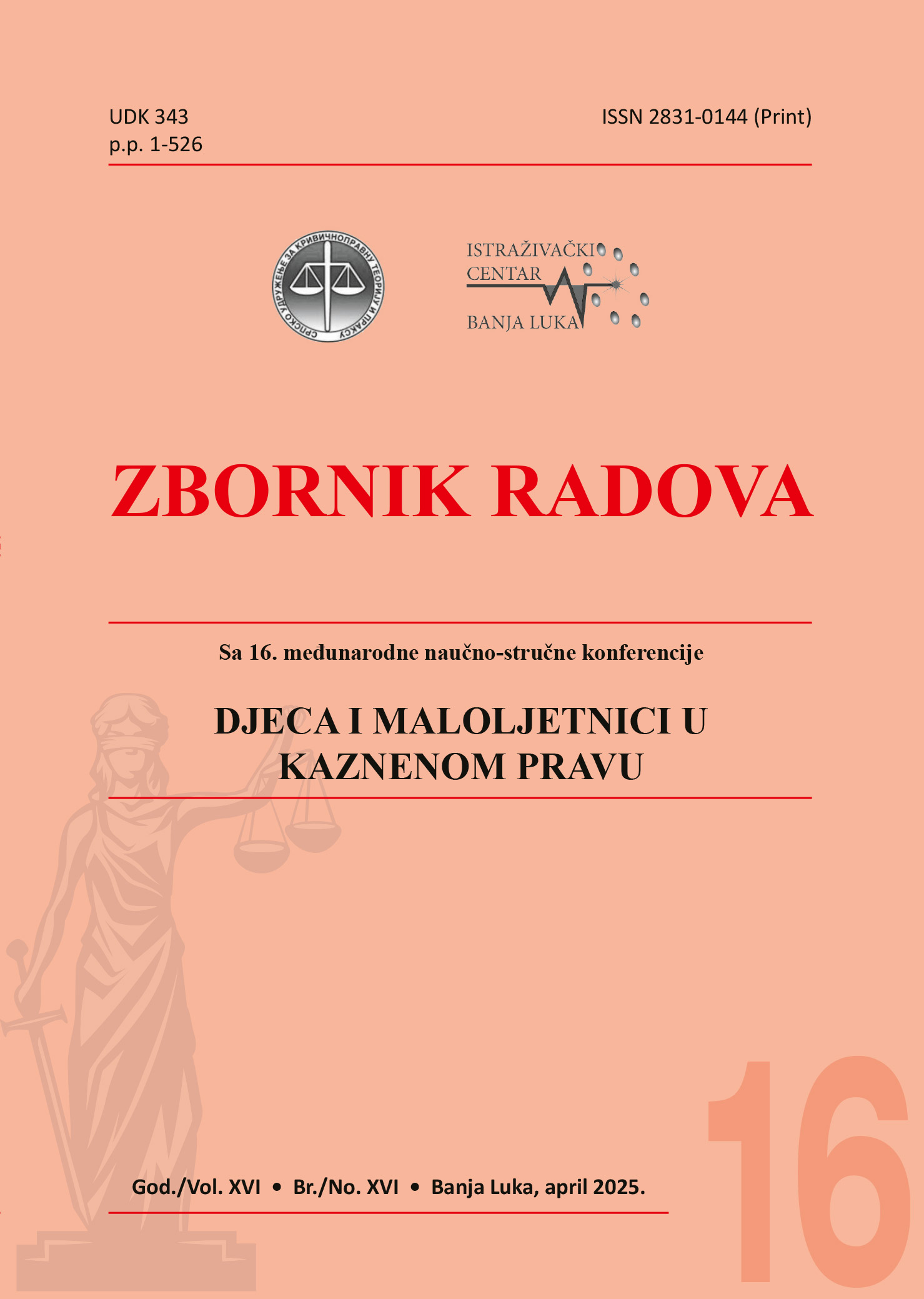JUVENAL JUSTICE AND PROSECUTORIAL DISCRETION IN A COMPARATIVE LIGHT - THE PRINCIPLE OF OPPORTUNITY IN CRIMINAL PROSECUTION AGAINST JUVENILE OFFENDERS IN COMPARATIVE LAW
DOI:
https://doi.org/10.7251/CEST1625374NKeywords:
Juvenile Justice, Prosecutorial Discretion, Principle of Opportunity, Comparative Criminal Law, Diversion and RehabilitationAbstract
The paper examines the application of the principle of opportunity in juvenile criminal proceedings across different legal systems. The principle of opportunity, as opposed to the principle of legality, allows prosecutors to refrain from initiating or continuing criminal proceedings when doing so serves the interests of justice, rehabilitation, or social reintegration. The paper provides a comparative analysis of various jurisdictions, highlighting differences in legal frameworks, prosecutorial authority, and policy rationales behind the discretionary prosecution of juvenile offenders. It assesses how different legal systems balance the need for accountability with the fundamental principles of juvenile justice, such as the best interests of the child, proportionality, and diversion from formal criminal proceedings. The study also evaluates the safeguards and limitations imposed on prosecutorial discretion to prevent arbitrariness, discrimination, or excessive leniency. The paper ultimately argues that an appropriately structured system of prosecutorial discretion can enhance the effectiveness of juvenile justice by prioritizing rehabilitative measures over punitive sanctions. Through a comparative lens, the research underscores the importance of a balanced approach in juvenile justice policies, advocating for a legal framework that safeguards due process while promoting the social reintegration of young offenders.
